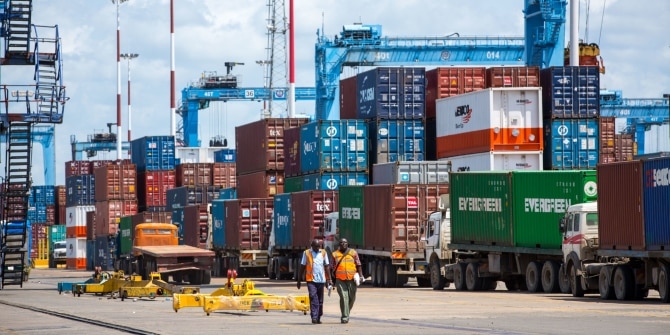The Africa Continental Free Trade Area (AfCFTA)
is about “Removing restrictions on Africans’ ability to travel, work and live within their own continent by transforming restrictive laws and promoting visa free travel to enhance movement of all African citizens in all African countries.”
“The 18th Ordinary Session of the Assembly of Heads of State and Government of the African Union, held in Addis Ababa, Ethiopia in January 2012, adopted a decision to establish a Continental Free Trade Area (CFTA) by an indicative date of 2017. The Summit also endorsed the Action Plan on Boosting Intra-Africa Trade (BIAT) which identifies seven clusters: trade policy, trade facilitation, productive capacity, trade related infrastructure, trade finance, trade information, and factor market integration.
The CFTA will bring together fifty-four African countries with a combined population of more than one billion people and a combined gross domestic product of more than US $3.4 trillion.”
Objectives of the CFTA
The main objectives of CFTA are:
• Create a single continental market for goods and services, with free movement of businesspersons and investments, and thus pave the way for accelerating the establishment of the Continental Customs Union and the African customs union.
• Expand intra African trade through better harmonization and coordination of trade liberalization and facilitation regimes and instruments across RECs and across Africa in general.
• Resolve the challenges of multiple and overlapping memberships and expedite the regional and continental integration processes.
• Enhance competitiveness at the industry and enterprise level through exploiting opportunities for scale production, continental market access and better reallocation of resources.
Scope of afCFTA
The scope of AfCFTA is large. The agreement will reduce tariffs among member countries of which Ghana is included and cover policy areas such as trade facilitation and services, as well as regulatory measures such as sanitary standards and technical barriers to trade.
Full implementation of AfCFTA would reshape markets and economies across the region and boost output in the services, manufacturing and natural resources sectors.
Madam Caroline Freund, the Global Director of Trade, Investment and Competitiveness noted on AfCFTA that “Creating a single, continent-wide market for goods and services, business and investment would reshape African economies. The implementation of AfCFTA would be a huge step forward for Africa, demonstrating to the world that it is emerging as a leader on the global trade agenda.”
Ghana and afCFTA
Ghana as a member is well positioned to take advantage of this platform. The geographical location of Ghana being bordered by several landlocked countries in the West African Sub Region, means that there is a large volume of trade activities that go through Ghana to these landlocked countries. The two major ports which are in Takoradi and Tema respectively, help to facilitate the movement of cargo into and through Ghana.
Therefore, there is a huge trade advantage for Ghana in the Logistics and Supply Chain sector for example. Transforming restrictive laws and ensuring visa free movement in Africa as a whole will facilitate the free movement of goods and persons to enhance trading activities which would have otherwise been stifled if this did not happen and the AfCFTA is a platform that will ensure this happens. This will give a huge boost to the Ghanaian economy especially on the back of challenges the country is facing from international pressures like the pandemic and rising prices of crude oil.
Adonai Shipping and afCFTA
Adonai Shipping Limited which is a wholly owned Ghanaian company and offers services in the shipping and logistics business is well placed to take advantage of this platform AfCFTA is offering. Our capable team which has been offering services for years in the Oil and Gas, mining and other key sectors of the Ghanaian economy has a wide range of experiences providing impeccable and timely services to these sectors.
The AfCFTA platform will grant us a wider access to the African market to expand and demonstrate our excellent capabilities. Because of the strategic geographical position of Ghana, there will be many opportunities in the supply chain. Opportunities like transit, transshipment, haulage etc.
In conclusion, the prospects for this single continent-wide market for Ghanaian shipping and logistics businesses are great. There will be access to a wider market, economic activity will be increased, and this will bring growth and some level independence to African economies. Ambitious Ghanaian businesses can expand their operations continent-wide.


